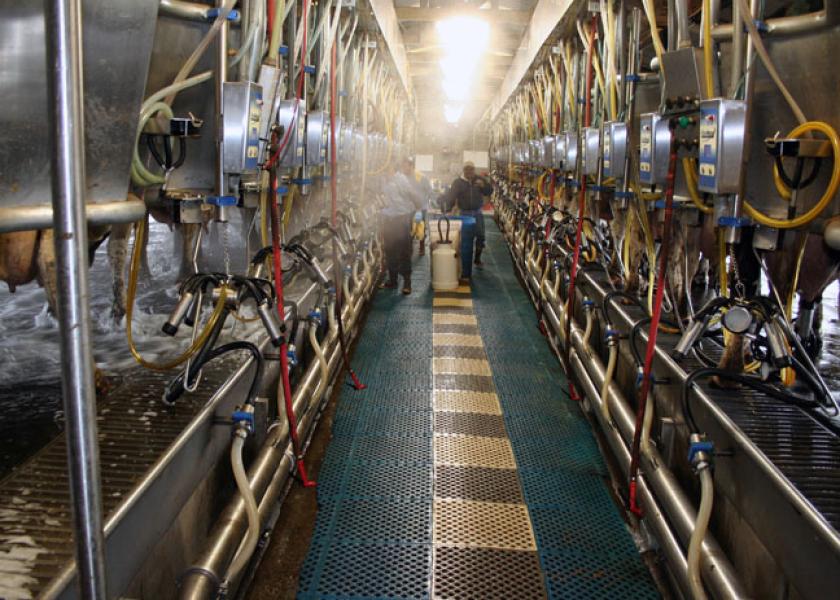10 Tips for Milking Parlor Safety

Working in a milking parlor, with its 24/7 schedule, is hard work that requires long hours and attention to detail. It’s also a prime location for slips, trips and falls by dairy workers. In fact, every year dairy workers are seriously injured in those very kinds of accidents, according to The Zenith Insurance Company.
The hazards of milking cows start with bringing them to the parlor from barns or corrals. Muddy terrain, manure on the ground, pot holes and uneven concrete pads can cause an employee to slip, trip or fall, The Zenith Co. says.
Additional risks arise during the milking process itself and with each shift’s parlor cleaning. Excess water and manure on the ground during milking, and raised sprinkler valves used for cleaning cows, can create potential hazards. Outside, falls from haystacks and equipment can be especially serious.
The Zenith Co., which assists employers in evaluating workplace safety exposures, urges dairies to observe these safety guidelines to prevent slips, trips and falls:
- Wear personal protective equipment, such as rubber boots, and inspect equipment before each shift. Rubber boots must be slip-resistant and replaced when treads are worn.
- Report damaged concrete so it can be repaired.
- Complete flushes for lanes on a scheduled basis.
- Maintain drainage at a good level. Keeping lanes and walk-ways free of standing water prevents algae growth, which can become slippery.
- Ensure that all open pits and drains have covers or guard rails.
- Don’t climb or sit on gates or fences.
- Use adequate lighting for better visibility during night operations.
- Don’t participate in horse play.
- Make sure that barns, fences and milking equipment are properly maintained.
More information from The Zenith Co. is available here.







